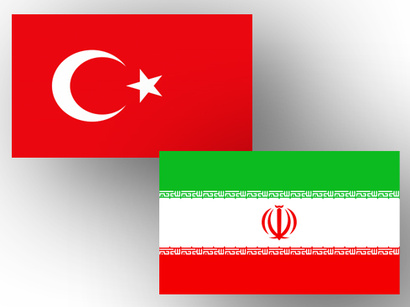Ankara, Tehran set to discuss regional issues

By Kamila Aliyeva
Turkey and Iran, two regional superpowers, will discuss regional issues during the visit of Turkish Chief of Staff Hulusi Akar to Iran.
The sides are expected to discuss the Syrian crisis as well as the referendum on independence in the Kurdish autonomy of Iraq, Turkish media outlets reported on October 2.
The Kurdish Regional Government’s (KRG) held a controversial independence referendum in northern Iraq, including areas disputed between Erbil and Baghdad, on September 25. Election authorities in Kurdistan announced that the independence referendum passed with 92 percent support.
Iraq, Iran and Turkey - countries with Kurdish minorities - have all denounced the referendum as a threat to the stability of a region already beset by conflict, while the United States has expressed similar disquiet.
Earlier, Turkish President Recep Tayyip Erdogan announced that he will pay an official visit to Tehran on October 4.
In the course of the visit, the Turkish president will meet with his Iranian counterpart Hassan Rouhani and supreme leader Ayatollah Ali Khamenei. The meetings will discuss bilateral relations, regional issues, the settlement of the Syrian crisis and the situation in Iraq.
Speaking at the Turkish Parliament's legislative year reception, the Turkish president said the roadmap that Turkey and Iran will follow in response to the controversial referendum and other regional developments will take shape after this visit.
As for Syrian issue, Russia, Turkey and Iran - had agreed on May 4 in the Kazakh capital, Astana, to establish "de-escalation zones" in war-torn Syria. The zones would cover the city of Idlib and certain parts of Latakia, Homs, Aleppo and Hama as well as Damascus, Eastern Ghouta, Daraa and Quneitra.
Syria has been locked in civil war since March 2011. According to UN's special envoy for Syria, Staffan de Mistura, around 400,000 people have died in the conflict while half the population has been driven from their homes.
Government forces are opposed by militant groups belonging to armed formations of various political orientations. The most active are the Islamic State, YPG and PYD.
---
Kamila Aliyeva is AzerNews’ staff journalist, follow her on Twitter: @Kami_Aliyeva
Follow us on Twitter @AzerNewsAz
Here we are to serve you with news right now. It does not cost much, but worth your attention.
Choose to support open, independent, quality journalism and subscribe on a monthly basis.
By subscribing to our online newspaper, you can have full digital access to all news, analysis, and much more.
You can also follow AzerNEWS on Twitter @AzerNewsAz or Facebook @AzerNewsNewspaper
Thank you!
